Ahsahta Press 2009
--Review by Maureen Alsop.
If you would like to submit a review or send a review copy query Matthew Henriksen at matt@typomag.com.
The Burning Chair Readings
present poetry
at an undisclosed location
(at 3996 N. Frontage Road #2)
Farrah Field
&
Jared White
Friday, June 12, 6:30-8pm
FREE w/ refreshments
Bring Your Own Date
(directions below)
Bios
Farrah Field’s first book of poems, Rising, won Four Way Books’ 2007 Levis Prize. Her poems have appeared in many publications including the Mississippi Review, Margie, The Massachusetts Review, Pool, Typo, Harp & Altar, 42Opus, La Petite Zine, Sojourn, Pebble Lake Review, Another Chicago Magazine, Fulcrum, and The Pinch. She lives in Brooklyn and blogs at adultish.blogspot.com.
Jared White was born in Boston, and has lived in Brooklyn for about eight years, during which time he received an MFA in poetry from Columbia, as well as playing a fair amount of music, mostly on the piano. His poems have appeared journals in print (Another Chicago Magazine, Barrow Street, Cannibal, Fulcrum) and online journals (Coconut, Horse Less Review, Word For / Word, Verse). He also published essays on poetry and music, most recently in Harp & Altar, Open Letters, and Poets Off Poetry. He was awarded a University Writing Prize from the Academy of American Poets. A chapbook of poems, entitled Yellowcake, was in Cannibal Books' Narwhal compendium. His very occasional blog, No No Yes No Yes, can be found at jaredswhite.blogspot.com.
Directions
3996 Frontage Road #2 is just off the intersection of Joyce and College. Heading North on College, turn RIGHT on Joyce (heading East), then LEFT (North) on the access road (which is the first road to the left). It is the first building on the Right – red awnings. Faces the access road, but abuts Joyce.
It is across Joyce from the Bank of America. The access road heads toward the back of Barnes and Noble, not south toward Panera.
Info: Contact Matt Henriksen @ frankstanfordfest@gmail.com
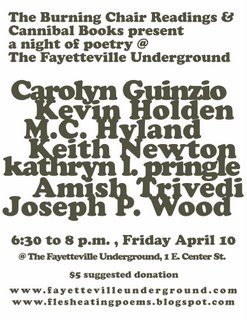
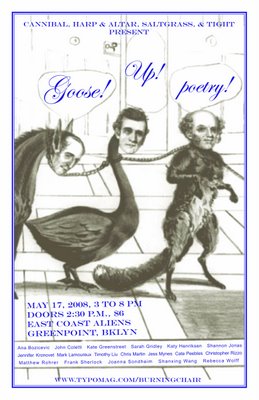
w/ projections by
Stephen Hilger
& music from
The Hadacol
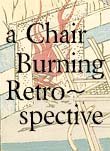
present
a Chair Burning Retrospective
at East Coast Aliens
Friday, April 18th
Doors 7:30 pm, readings from 8-10 pm
Andrea Baker
Jim Behrle
Brenda Iijima
Dorothea Lasky
Tim Peterson
Thibault Raoult
Craig Morgan Teicher
Dara Wier
w/ music from
& an after-party featuring
the dreams [of the congregation of details
216 Franklin St
btwn. India & Huron
Greenpoint, Brooklyn
G to Greenpoint Ave (exit at India St)
B61/B43/B42
Andrea Baker is the author of like wind loves a window (Slope Editions,
2005) and the chapbooks gilda (Poetry Society of America, 2004) and true
poems about the river go like this (Cannibal Books, 2008).
walter baker is a musician / composer living in Brooklyn. His background
spans everything from being a sideman guitarist for country singer
George Strait to playing jazz and experimental in the NYC downtown scene to attentions from Bang On A Can. Though he maintains a profile as a modern guitarist, he is most recently best known for his performances as a player of the Rubberbandhorn and the subject of a soon to be released documentary, A Rubberband is an Unlikely Instrument.
Jim Behrle is the author of She’s My Best Friend (Pressed Wafer), City Point (Pressed Wafer) and The (Purple) Notebook of the Lake (Braincase). He sleeps on a floor in Greenpoint.
Brenda Iijima is the author of Animate, Inanimate Aims (Litmus Press) and Around Sea (O Books). If Not Metamorphic was runner up for the Sawtooth Prize and will be published by Ahsahta Press. She is the editor of Portable Press at Yo-Yo Labs (yoyolabs.com/). Together with Evelyn Reilly she is editing a collection of essays by poets concerning poetry and ecological ethics titled, )((eco (lang)(uage(reader). She is the art editor for Boog City as well as a visual artist. She lives in Brooklyn, New York where she designs and constructs homeopathic gardens.
Dorothea Lasky was born in St. Louis in 1978. Her first book of poems, AWE, was published in the fall of 2007 from Wave Books. Her poems have appeared in Boston Review, Phoebe, 6x6, Crowd, Coconut, jubilat, Lungfull!, Knock, Carve, Foursquare, and Skein, among other places. She has been educated at the University of Massachusetts-Amherst, Harvard University, and Washington University. Currently, she lives in Philadelphia, where she studies education at the University of Pennsylvania.
Tim Peterson is the author of Since I Moved In, which received the Gil Ott Award from Chax Press. He edits EOAGH: A Journal of the Arts and curates a portion of the Segue Reading Series.
Thibault Raoult was a Dolin Scholar at the University of Chicago, and, for two years, OFF(icial) poet-in-residence at Brown University. I’ll Say I’m Only Visiting emerged from Cannibal Books (Brooklyn) in Nov/07; a second run is expected in coming-season. A new volume, El p.e. [physical education of the elevated train, emerges from Projective Industries in the coming months. Born in Pithiviers, France, raised in Rochester, NY, Thibault generates the dreams [of the congregation of details—a most real e-(s)tat(e) near 3Coasts.
Craig Morgan Teicher's first book is Brenda Is in the Room and Other Poems. His second, Cradle Book, a collection of fables, will be out from BOA Editions in 2010. He lives in Brooklyn with his wife and son.
Dara Wier's books include Remnants of Hannah (Wave Books 2006); Reverse Rapture (Verse Press 2005); Hat on a Pond (Verse Press, 2002) and Voyages in English (Carnegie Mellon U. Press, 2001). A limited edition, (X in Fix), a selection of 5 longer poems, including a section from Reverse Rapture, is printed in RainTaxi’s Brainstorm series. She works as a member of the poetry faculty and director of the MFA program for poets and writers at the University of Massachusetts Amherst. Her book, Reverse Rapture has been recently awarded The Poetry Center & American Poetry Archives 2006 book of the year prize.
Pierre Joris is a poet, translator, essayist & anthologist who left Luxembourg at 19 and has since lived in France, England, Algeria & the United States. He has published over forty books, with, forthcoming in 2008, Aljibar II (poems, a bilingual edition with French translations by Eric Sarner) and Justifying the Margins: Essays 1990-2006 (SALT Publishing). His 2007 publications include the CD Routes, not Roots (with Munir Beken, oud; Mike Bisio, bass; Ben Chadabe, percussion; & Mitch Elrod, guitar) issued by Ta’wil Productions; Aljibar (with French translations by Eric Sarner, published in Luxembourg by Editions PHI) and Meditations on the Stations of Mansour Al-Hallaj 1-21(Anchorite Press, Albany). Recent translations include Paul Celan: Selections, and Lightduress by Paul Celan, which received the 2005 PEN Poetry Translation Award. With Jerome Rothenberg he edited the award-winning anthologies Poems for the Millennium (volumes I & II) and most recently, Pablo Picasso, The Burial of the Count of Orgaz & Other Poems. He is Professor for poetry and poetics at the University of Albany, State University of New York. Check out his website & his Nomadics blog.
Dan Machlin’s first full-length collection of poems Dear Body: was published by Ugly Duckling Presse in Fall 2007. He is also the author of several previous chapbooks: 6x7, This Side Facing You, In Rem; and an audio-CD collaboration with Singer/Cellist Serena Jost, Above Islands. His poems and reviews have recently appeared in/on Critiphoria.org, Crayon, Turntable & Blue Light, and A Portable Boog Reader 2. He is the founding editor of Futurepoem books.

Take the upper level of the Queensborough Bridge into Queens & turn left on 21st Street. Cross the Pulaski Bridge, which turns into McGuiness Boulevard on the Brooklyn side. Take the third right after the bridge at Huron St. After two blocks turn right on Franklin St. East Coast Aliens is on the right side. The ride from Midtown (w/ gratuity) should cost between $20-25.
from Lower Manhattan
Take the Williamsburg Bridge to the BQE (Brooklyn-Queens Expressway) north to McGuiness Boulevard (Exit 33). Turn left onto McGuiness Boulevard. After approximately eight blocks turn left on Greenpoint Avenue. After three blocks turn right on Franklin Street. East Coast Aliens is four blocks up on the right side. The ride from Lower Manhattan (w/ gratuity) should range between $20-25.
by train (for the adventuresome & frugal)
from Midtown Manhattan
Take the Queens-bound 7 train from Times Square, Bryant Park or Grand Central to Vernon/Jackson (the first stop after Grand Central). Exit at Jackson Ave. & walk one block east to the B61 bus stop at 11th St and Jackson Ave. Take the B61 two stops to Manhattan Ave. between Freeman and Green. Walk right on Green St. one block to Franklin St. & turn left. East Coast Aliens is on your left.
from Lower Manhattan (simpler than from Midtown)
Take the Brooklyn-bound L train to Lorimer. Transfer at the station to the Metropolitan stop of the G train. Take the Queens-bound G train two stops to Greenpoint Ave. Exit at India St. & walk one block north to Huron St. Turn left on Huron, walk one block to Franklin St. & turn right. East Coast Aliens is on your right.
from Brooklyn and Queens (or ride your bike!)
Take the G train to Greenpoint Ave. Exit at India St. & head north one block to Huron St. Turn left on Huron, walk one block to Franklin St. & turn right. East Coast Aliens is on your right.
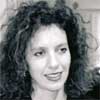 Maureen Alsop’s recent poems have appeared or are pending in various publications including: Barrow Street, Typo, Margie, Columbia : A Journal of Literature and Art and Texas Review. Her poetry was three times nominated for the Pushcart Prize. She is the 2006 recipient of Harpur Palate's Milton Kessler Memorial Prize for Poetry and The Eleventh Muse 2006 poetry prize. Her first full collection of poetry Apparition Wren is available through Main Street Rag. ~ Two poems in Typo 10.
Maureen Alsop’s recent poems have appeared or are pending in various publications including: Barrow Street, Typo, Margie, Columbia : A Journal of Literature and Art and Texas Review. Her poetry was three times nominated for the Pushcart Prize. She is the 2006 recipient of Harpur Palate's Milton Kessler Memorial Prize for Poetry and The Eleventh Muse 2006 poetry prize. Her first full collection of poetry Apparition Wren is available through Main Street Rag. ~ Two poems in Typo 10.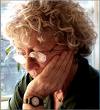 Jean Valentine won the Yale Younger Poets Award for her first book, Dream Barker, in 1965. Her most recent collection, Door in the Mountain: New and Collected Poems 1965 - 2003, won the 2004 National Book Award for Poetry. Author of eight additional books, Valentine has received a Guggenheim Fellowship and awards from the NEA, The Bunting Institute, The Rockefeller Foundation, The New York Council for the Arts, and The New York Foundation for the Arts, as well as the Maurice English Prize, the Teasdale Poetry Prize, and The Poetry Society of America's Shelley Memorial Prize. She has taught at Columbia, Sarah Lawrence College, NYU, and the 92nd St. Y, among other places. ~ Jean Valentine.com featuring audio recordings of poems from Door in the Mountain.
Jean Valentine won the Yale Younger Poets Award for her first book, Dream Barker, in 1965. Her most recent collection, Door in the Mountain: New and Collected Poems 1965 - 2003, won the 2004 National Book Award for Poetry. Author of eight additional books, Valentine has received a Guggenheim Fellowship and awards from the NEA, The Bunting Institute, The Rockefeller Foundation, The New York Council for the Arts, and The New York Foundation for the Arts, as well as the Maurice English Prize, the Teasdale Poetry Prize, and The Poetry Society of America's Shelley Memorial Prize. She has taught at Columbia, Sarah Lawrence College, NYU, and the 92nd St. Y, among other places. ~ Jean Valentine.com featuring audio recordings of poems from Door in the Mountain.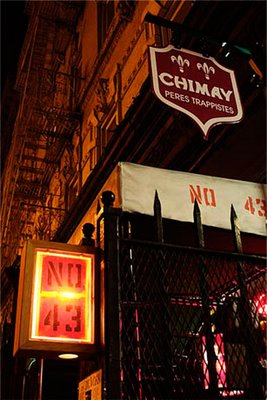
@ Jimmy’s No. 43 Stage, 8 PM
August 31st - Frank Sherlock & David Shapiro
September 28th - Dorothea Lasky & Laura Solomon
October 26th - Cynthia Cruz & Karla Kelsey
November 30th - Maureen Alsop & Jean Valentine
The Fall Café
307 Smith Street
between Union & President
Carroll Gardens, Brooklyn
F/G to Carroll
Jimmy’s No.43 Stage
43 East 7th Street
between 2nd & 3rd Avenues
NYC
The Burning Chair Readings
contact: Matthew Henriksen
matt AT typomag DOT com
Born in Portland, Oregon, Michael Robins is the author of The Next Settlement (University of North Texas Press, 2007), which was selected for the Vassar Miller Prize in Poetry. He holds degrees from the University of Oregon and the University of Massachusetts Amherst, and his poems have recently appeared or are forthcoming in Boston Review, The Cincinnati Review, Denver Quarterly, LUNA, Third Coast and elsewhere. He lives in Chicago and teaches at Columbia College. - "My Life as an Edge of the Lawless Frontier" in Typo 6 - Two poems in Octopus
Dara Wier's books include Remnants of Hannah (Wave Books 2006); Reverse Rapture (Verse Press 2005); Hat on a Pond (Verse Press, 2002) and Voyages in English (Carnegie Mellon U. Press, 2001). A limited edition, (X in Fix), a selection of 5 longer poems, including a section from Reverse Rapture, is printed in RainTaxi’s Brainstorm series. Recent poems can be found in American Poetry Review, New American Writing, Volt, Massachusetts Review, The Melic, The Canary, Painted Bride Quarterly, Mississippi Review, slope, Hollins Critic, Seattle Review, Turnrow, Hunger Mountain, Cincinnati Review, Denver Quarterly, Octopus, Conduit, Crazyhorse, Court Green and Gulf Coast. She works as a member of the poetry faculty and director of the MFA program for poets and writers at the University of Massachusetts Amherst. Her book, Reverse Rapture has been recently awarded The Poetry Center & American Poetry Archives 2006 book of the year prize. - "Blue Oxen"
David B. Goldstein is the author of a chapbook, Been Raw Diction (Dusie), and his poetry has appeared in numerous journals, including The Paris Review, Jubilat, Typo, Epoch, Alice Blue Review, and Pinstripe Fedora. He recently joined the faculty of York University in Toronto, where he teaches Renaissance literature, creative writing, and food studies. - "Paysage" in Typo 9 - Three poems in Dusie
Genya Turovskaya is the author of the chapbook The Tides, recently published by Octopus Books. Her poetry and translations from Russian have appeared in Conjunctions, Chicago Review, jubilat, Landfall, A Public Space and other publications. She lives in Brooklyn, and is an
editor at Ugly Duckling Presse. - "Pax"
Ken Rumble is the author of Key Bridge (Carolina Wren Press, 2007) and marketing director of the Green Hill Center for North Carolina Art. He is currently working on a book with his father about the earth's atmosphere & Antarctica. His poems have been published in Parakeet, Cutbank, Fascicle, Typo, Octopus, XConnect, Coconut, and others. - Two poems in Typo 8
Paige Ackerson-Kiely was born in October of 1975 at the behest of her parents in Biddeford, Maine. Her first book, In No One's Land won the 2006 Sawtooth Poetry Prize. She currently resides in Vermont, where she is employed selling wine, and is at work on a second manuscript of poems entitled My Love is a Dead Arctic Explorer, and a novel about infanticide. - Three poems in jubilat
Lily Brown holds an MFA from Saint Mary's College and currently lives in San Francisco. Her poems have been published or are forthcoming in Typo, Octopus, Fence, Cannibal, Tarpaulin Sky, Handsome and Coconut. - Octopus Books published her chapbook, The Renaissance Sheet, in early 2007
Elizabeth Robinson is the author of 8 books of poetry, most recently Under That Silky Roof (Burning Deck Press) and Apostrophe (Apogee Press). The Orphan and its Relations is forthcoming from Fence Books in 2008. Robinson co-edits EtherDome Press and Instance Books and lives in Boulder, Colorado. - Two poems in Rain Taxi
David Shapiro’s New and Selected Poems (1965-2006) was released from Overlook Press in 2007. In addition to his many books, Shapiro has published art criticism and poetry in The New Yorker, The Paris Review, and Artforum. He has received a fellowship from the National endowment for the Arts, the Zabel Prize for Experimental Poetry from the American Academy of Arts and Letters, and a nomination for a National Book Award in 1971. He has edited volumes of aesthetics, translated Alberti’s poems about Picasso, collaborated with Rudy Burckhardt on three films, and had a play produced at the Kitchen called “Two Boys on the Bus.” A professional violinist in his youth, he now writes in Riverdale, New York, where he lives with his wife Lindsay. - Four poems in Lingo
Frank Sherlock is the author of Wounds in an Imaginary Nature Show (Night Flag Press), Spring Diet of Flowers at Night (Mooncalf Press), ISO (furniture press) and 13 (Ixnay Press). Past collaborations include work with CAConrad, Jennifer Coleman, and sound artist Alex Welsh. Publication of his most recent collaborative poem with Brett Evans, entitled Ready-to-Eat Individual is forthcoming in the near future. - from The City Real & Imagined: Philadelphia Poems
Dorothea Lasky was born in St. Louis, MO in 1978. Her first full-length collection, AWE (Wave Books), will be out in the fall of 2007. She is the author of three chapbooks: The Hatmaker's Wife (Braincase Press, 2006), Art (H_NGM_N Press, 2005), and Alphabets and Portraits (Anchorite Press, 2004). Her poems have appeared in jubilat, Crowd, 6x6, Boston Review, Delmar, Phoebe, Filter, Knock, Drill, Lungfull!, and Carve, among others. Currently, she lives in Philadelphia, where studies education at the University of Pennsylvania and co-edits the Katalanche Press chapbook series, along with the poet Michael Carr. She is a graduate of the MFA program for Poets and Writers at the University of Massachusetts-Amherst and also has been educated at Harvard University and Washington University. - Eight poems in the Boston Review
Laura Solomon was born in 1976 and grew up in the deep South. She studied Political Science and Literature at the University of Georgia in Athens, and later Creative Writing at the University of Massachusetts-Amherst. Her first book Bivouac was published by Slope Editions in 2002. Other publications include a chapbook, Letters by which Sisters Will Know Brothers (Katalanché Press 2005), and Haiku des Pierres / Haiku of Stones by Jaques Poullaouec, a translation from the French with Sika Fakambi (Apogée Press, 2006). Her second book of poetry Blue and Red Things has just been released by Ugly Duckling Presse. Currently she lives in Philadelphia where she works as a tutor and researcher for an adult literacy intervention program. - Five poems in Octopus
Cynthia Cruz was born in Germany and raised in Northern California. Her first book, Ruin, was published by Alice James Books in 2006. Her poems have appeared in the American Poetry Review, Paris Review, Boston Review, Colorado Review, Denver Quarterly, and others, and are anthologized in Isn't it Romantic: 100 Love Poems by Younger Poets and The Iowa Anthology of New American Poetries. She is the recipient of several residencies to Yaddo and the MacDowell Colony. She lives in New York City.
Born and raised in Southern California, Karla Kelsey holds degrees from UCLA, The Iowa Writers Workshop, and The University of Denver. Her first book, Knowledge, Forms, the Aviary won the 2005 Sawtooth Poetry Prize judged by Carolyn Forché and was published in 2006 by Ahsahta Press. Her second full-length manuscript, Iteration Nets, is based in the sonnet form and is forthcoming from Ahsahta. Karla is also author of the chapbooks Little Dividing Doors in the Mind (Noemi Press, 2005) and Iterations (Pilot Press, forthcoming). Recent poems, essays, and reviews can be found in the Boston Review, Octopus, Five Fingers Review, Lit, and CAB/NET. - Four poems in the Boston Review
Maureen Alsop’s recent poems have appeared or are pending in various publications including: Barrow Street, Typo, Margie, Columbia : A Journal of Literature and Art and Texas Review. Her poetry was twice nominated for the Pushcart Prize. She is the 2006 recipient of Harpur Palate's Milton Kessler Memorial Prize for Poetry and The Eleventh Muse 2006 poetry prize. Her first full collection of poetry Apparition Wren is available through Main Street Rag.
Jean Valentine won the Yale Younger Poets Award for her first book, Dream Barker, in 1965. Her most recent collection, Door in the Mountain: New and Collected Poems 1965 - 2003, won the 2004 National Book Award for Poetry. Author of eight additional books, Valentine has received a Guggenheim Fellowship and awards from the NEA, The Bunting Institute, The Rockefeller Foundation, The New York Council for the Arts, and The New York Foundation for the Arts, as well as the Maurice English Prize, the Teasdale Poetry Prize, and The Poetry Society of America's Shelley Memorial Prize. She has taught at Columbia, Sarah Lawrence College, NYU, and the 92nd St. Y, among other places. - from Door in the Mountain
He doesn’t play around with the paradoxical circumstances of striving to put the unspeakable into words. Rather, Foust embraces the uncertainty: “The leaves are on their shadows.” In a manner similar to Blake’s flipping of reason and passion, Faust flips certainty and doubt to “see the earth again” as place were the only certainty is that knowing is tenuous. I find compensation (Emerson’s definition) in the reversal, in that adopted perspective parallel to my favorite Confucian axiom: “To know that you know what you know, and to know that you do not know what you do not know, that is true wisdom.”
In “Panama,” Foust begins with one of Stevens’ favorite tropes: “Fruit thumps in the pointless/grass, has no hand in itself.” Foust, unlike Stevens, does not use the sensuality of the apple as a critique of religion but as an observed phenomenon elucidating the predicament of recognizing the possibility of one’s own meaninglessness.
If only I couldn’t
understand, I’d imagine
some sarcastic new Christ and say
something someone would say.
Turning the expected “could” into “couldn’t,” Foust admits that what he knows necessitates doubt far more readily than what he doesn’t know allows for faith. Although it’s not a defense of religion, “some sarcastic new Christ” critiques the abundant abuse of irony and the resulting emptiness of “some” (as opposed to Foust’s literal application of “nowhere”). Foust continually identifies suffering as the basis of experiential investigation (“Pain is okay—/it’s the practical/that murders”). Our “practical” ideologies and self-defenses inhibit our capacities for experience.
Engagement with the literal and person, however, often leaves poets susceptible to sentimental slip-ups. “Marital” begins with Foust bending ordinary language into new sound-driven resonances: “To have and have and//have and how/could you not//stop blossoming.” Riffing on “to have” is appropriate, if not predictable, but “blossoming” is an easy a word to throw in and far too symbolic to fit with Foust’s usually precise language. The poem goes on to beautifully crude statements, maybe intended to undercut the melodrama:
Some days I can’t feel
much of anything. Others
I come so
hard I think
I’ve bled.
He also says, “Our city’s a list/of its pissed-//out-of windows.” Instead of synthesizing the blossoming and the piss, nearing the end of the poems Foust reverts to symbolic purity: “You break into belief./I lie and climb into tears.” I’ll take a few bleary lines like that, though, over a book pat with ironic and imagistic evasions. Most of my favorite books read like that.